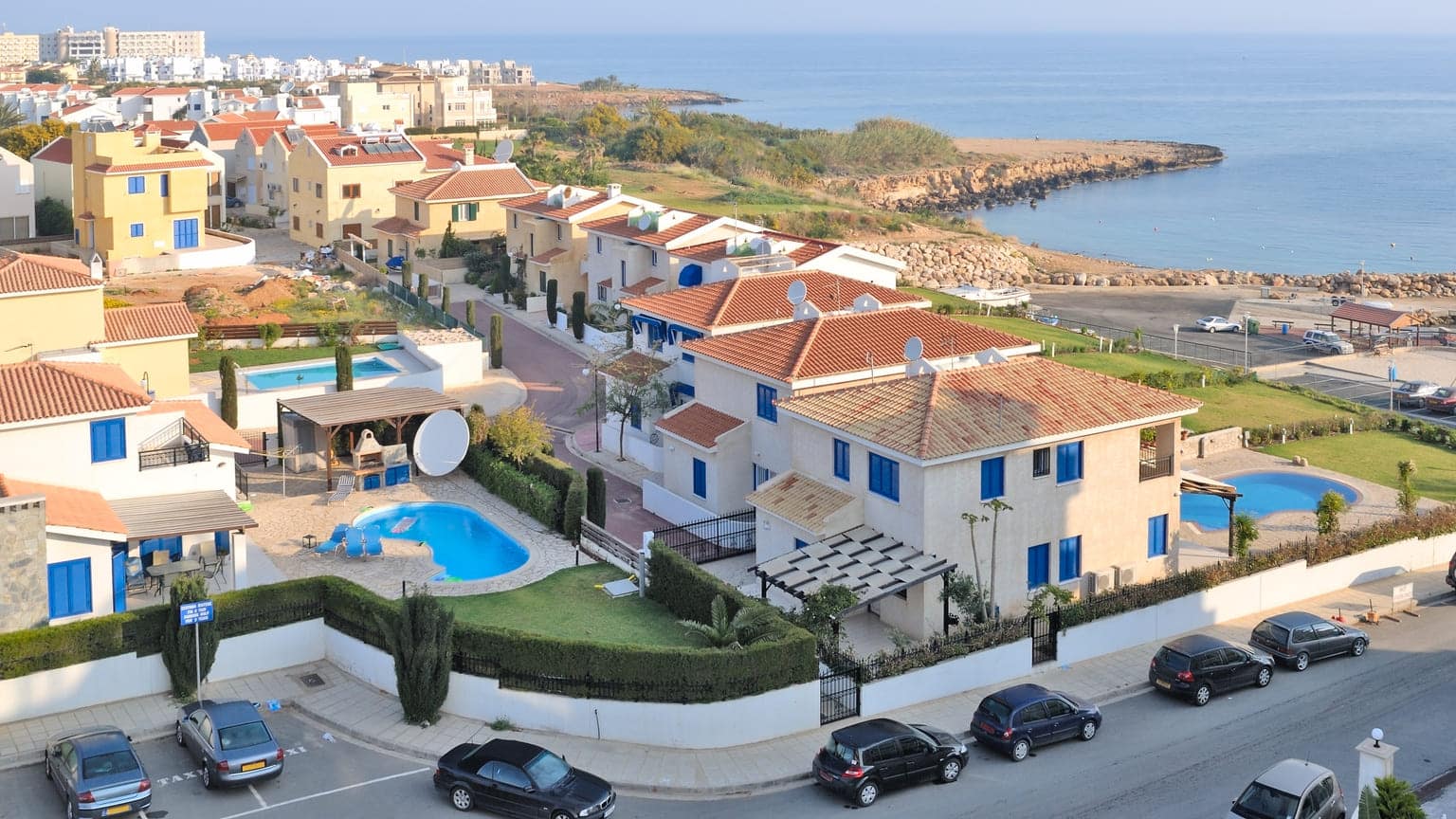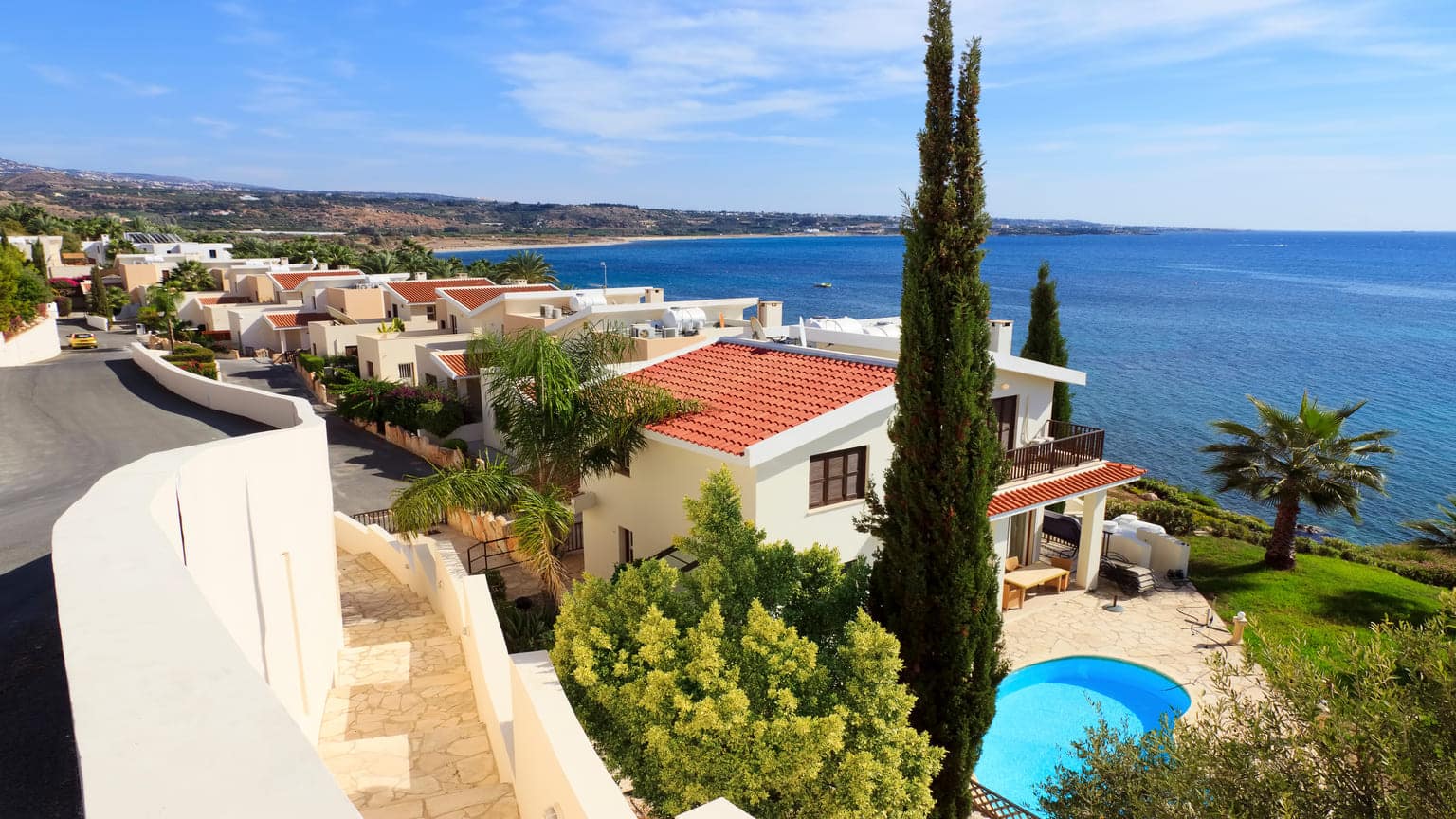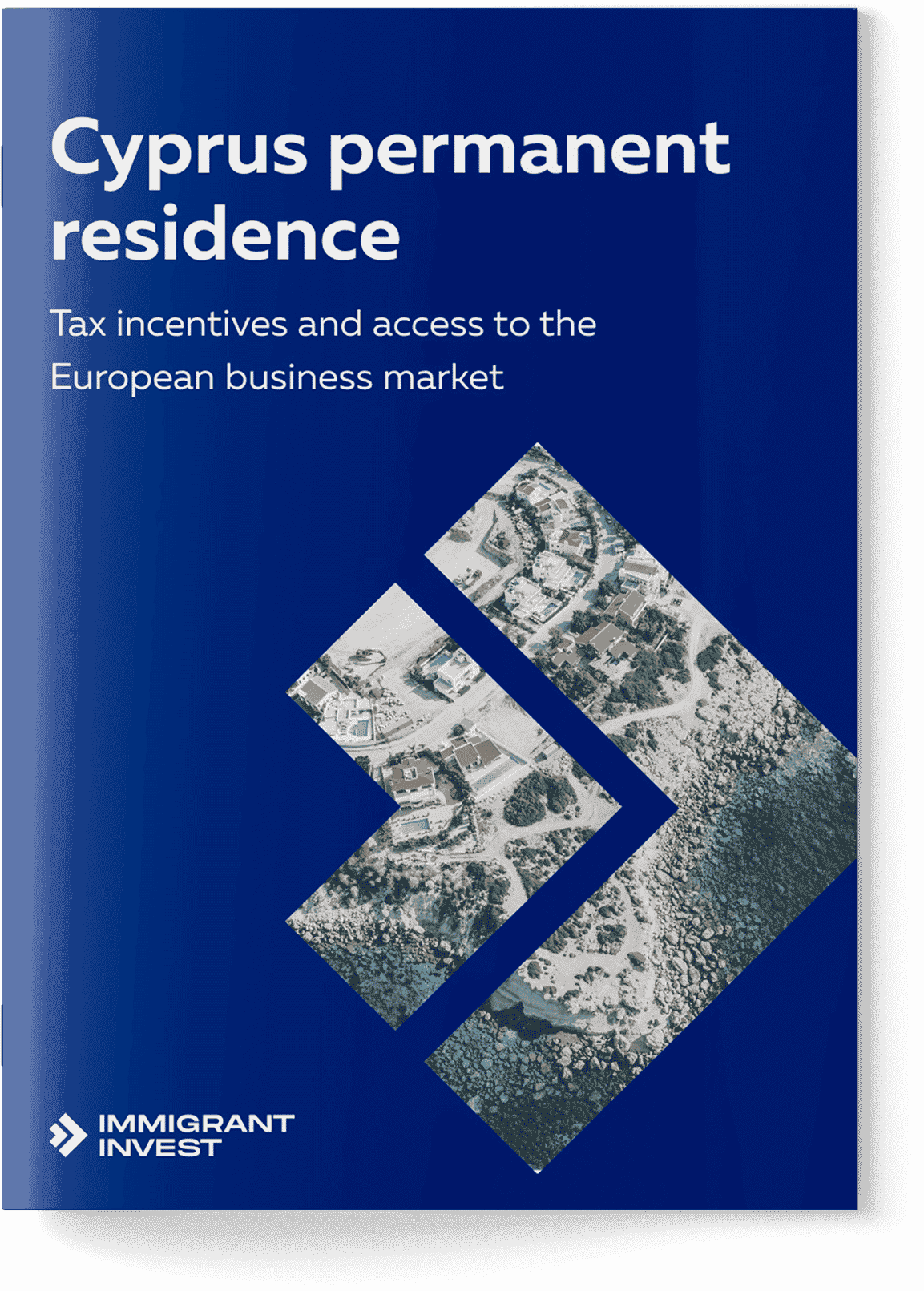Utility expenses in Cyprus
Foreigners buying real estate in Cyprus can apply for Cyprus permanent residency under the permanent residence by investment program. After purchasing a house, a villa, or an apartment, you will have to allocate a certain sum each year to maintain it. The biggest share of the annual maintenance of real estate is utility expenses.
Utility tariffs in Cyprus depend on the location and size of the property. The total cost is calculated based on the consumption of the household.
Electricity. Electricity bills usually account for most of the utility expenses and include:
- air conditioning, which is essential during summer months;
- water heating;
- heating during winter months;
- other electricity needs, such as lighting and household appliance consumption.
Electricity expenses include a fixed charge of around €7 and a variable charge that depends on the electricity consumption. The rate per kWh is €0.33, including taxes. Electricity bills are issued every 2 months, and an average total electricity bill for a family of four is €150—200.
Water supply. Tariffs for water supply in Cyprus are progressive, which means the more you consume, the higher the price for a cubic metre will be. Consumers also have to pay a monthly fee for sewerage for every cubic metre and a fixed supply charge.
Exact water supply rates vary depending on the region and are set by local branches of the Water Development Department.
In Limassol, the most popular city among property buyers, the fixed fees for households and commercial premises are €22 and €130, respectively, and cubic metre costs are as follows:
- up to 40 m3 per month — €0,9;
- from 41 to 80 m3 — €1,43;
- from 81 to 120 m3 — €2,45;
- above 121 m3 — €5.
Cyprus has no centralised hot water supply, so homeowners usually install water heaters.
Gas. Many people in Cyprus use gas for cooking and heating in winter. There is no centralised gas supply; gas is purchased in special cylinders. When you buy a standard cylinder of 10 kg for the first time, you pay a €28 deposit. After you use all the gas, you pay €14 for a refill.
One gas cylinder usually lasts for two or three months.

Heating. There is no central heating in Cyprus. To warm houses in winter, people use air conditioners and electric heaters, or they can install a gas heating system. This adds up to electricity bills and gas expenses.
Communication services. Internet tariffs depend on the digital provider and the connection speed and start from €14.99 per month. The TV package charge depends on the provider and the number of channels and starts from €7.99 per month.
Annual property taxes in Cyprus
There are several taxes that property owners should pay every year. In the past, the main annual tax was an immovable property tax. However, in 2017 the Cyprus government abolished it to attract buyers. Currently, property owners pay the municipal tax instead.
Municipal tax. The tax rate depends on the market value and the location of the property and varies from 0.1% to 0.2%. The approximate amount the owner will have to pay is €90 to €300 annually. This money is used to keep the streets clean, collect rubbish, maintain public lighting, and for other local expenses.
Property rental income tax. This tax is applied in case the real estate is rented out. The tax rate is progressive and varies from 0% to 35% of the annual profit:
- up to €19,500 — no tax is applied;
- €19,500—28,000 — 20% rate;
- €28,000—36,300 — 25% rate;
- €36,300—60,000 — 30% rate;
- over €60,000 — 35% rate.
Property owners renting their real estate out are entitled to a standard deduction of 20% of gross rental income to account for income-generating expenses. For example, if you rent out an apartment in Larnaca for €2,400 per month, your gross annual income will be €28,800. Given the deduction, the taxable amount decreases to €23,040, making the tax rate 20% instead of 25%. So, you will have to pay €4,608 instead of €5,760 as tax.
What taxes to pay when buying or selling property in Cyprus
Property owners in Cyprus pay a number of taxes and fees when purchasing and selling real estate.
Stamp duty. The buyer has to pay stamp duty for the purchase agreement and related documents. The rate is calculated based on the value of a purchase agreement:
- up to €5,000 — no stamp duty;
- €5,000—€170,000 — the stamp duty of 0.15%;
- more than €170,000 — the stamp duty of 0.2%.
Value-added tax (VAT). This tax is paid for buying primary real estate. The standard VAT rate is 19%, but it can be reduced to 5% under several conditions:
- the property is first for the buyer;
- the buyer is going to live in the purchased property themself on a permanent basis;
- the house is up to 130 m², with a maximum value of €350,000;
- the total buildable area does not exceed 190 m², and the total transaction cost is less than €475,000;
- the buyer does not sell the property for 10 years.
If the buyer enjoyed the VAT reduction but didn’t use the property for their residence or sold it within 10 years, then the reduction difference of 14% must be returned to the Cyprus Tax Department.
Secondary real estate in Cyprus is VAT-free.
Transfer fee. This tax is paid in case of the purchase of a secondary real estate for a transfer of immovable property. The rate ranges between 3% and 8% and depends on the property market value as follows:
- 3% for property of up to €85,430;
- 5% for property worth between €85,430 and €170,860;
- 8% for property worth more than €170,860.
If there are several buyers in the deal, the transfer fee is divided between them.
Capital gains tax. After selling the property, the owner has to pay 20% of the profit made on the sale. The tax is applied to both residential and commercial real estate. Property improvement costs, i.e. repairs expenses, can be deducted from the taxable amount if corresponding supporting documents are provided.
0.4% tax on sales for the support of housing for Cypriot refugees. This tax applies to all real estate sales and goes to a fund managed by the Central Agency for the Equal Distribution of Burdens. The funds raised support Greek Cypriot refugees who suffered from the Turkish invasion.
Property insurance costs in Cyprus
In Cyprus, it is not mandatory to insure real estate, but owners usually prefer to buy property insurance against theft, fire, or unforeseen situations. Other points that can be included in the insurance are:
- the physical structure of a home;
- personal property, garden;
- home emergencies;
- liability and medical expenses in case someone is injured in your home;
- additional living expenses in case the home is uninhabitable due to fire, flood, or similar events.
The cost of insurance depends on the size and condition of the property, the coverage amount, and the chosen insurance company. The average insurance fee against theft and fire of €20,000 is €100—150 per year.
How much would it cost to maintain a house in Cyprus?
Total real estate maintenance costs in Cyprus widely depend on the size and location of the house and individual consumption of water, electricity, and gas. Below is the calculation of the average annual utility costs for a 100 m2 apartment in Limassol for a family of four.
| Type of utility | Fees per month | Fees per year |
| Electricity | €100 | €1,200 |
| Water supply and sewerage | €20 | €240 |
| Gas | €14 per bottle | €56 |
| Internet and TV | €50 | €600 |
| Total | €184 | €2,096 |
In addition to utility costs, an owner pays around €180 as the municipal tax and €100 as the insurance premium yearly. In this case, the total annual maintenance cost will be €2,376.
A 100 m2 in the centre of Limassol can be rented out for around €2,650 per month. In this case, the total annual income will be €31,800, and the owner’s net profit after deducting €5,088 of tax and €2,376 of maintenance costs will be €24,336.
The calculations given above can be relevant for the following apartment:
Cyprus real estate costs
Real estate prices in Cyprus are among the most affordable in Europe. The average price per square metre is €1,680. To compare, in Malta, it is €2,612, and in Portugal, it is €1,940.
The most popular regions among property buyers are Limassol, Nicosia, and Larnaca.
Average property prices in Cyprus
| City | Residential sale, per 1 m² | Office sale, per 1 m² |
| Nicosia | €1,750—2,466 | €3,000—4,500 |
| Larnaca | €1,358—1,975 | €2,000—3,000 |
| Limassol | €2,319—3,300 | €5,000—6,000 |
Factors that increase the price are:
- the proximity to the city centre or the sea;
- the transport accessibility;
- the residential complex’s infrastructure, such as a swimming pool, elevators, and parking.
The real estate market in Cyprus is steadily growing. In 2022, property prices increased by 9.9% for apartments, 1.0% for houses, 0.3% for offices, 4.7% for holiday apartments, and 0.9% for holiday houses. This makes property purchase in Cyprus a promising investment that could also grant you residency and, potentially, citizenship.
Examples of residential real estate in Cyprus
Below are some examples of property in Cyprus that qualify for the residence by investment program:
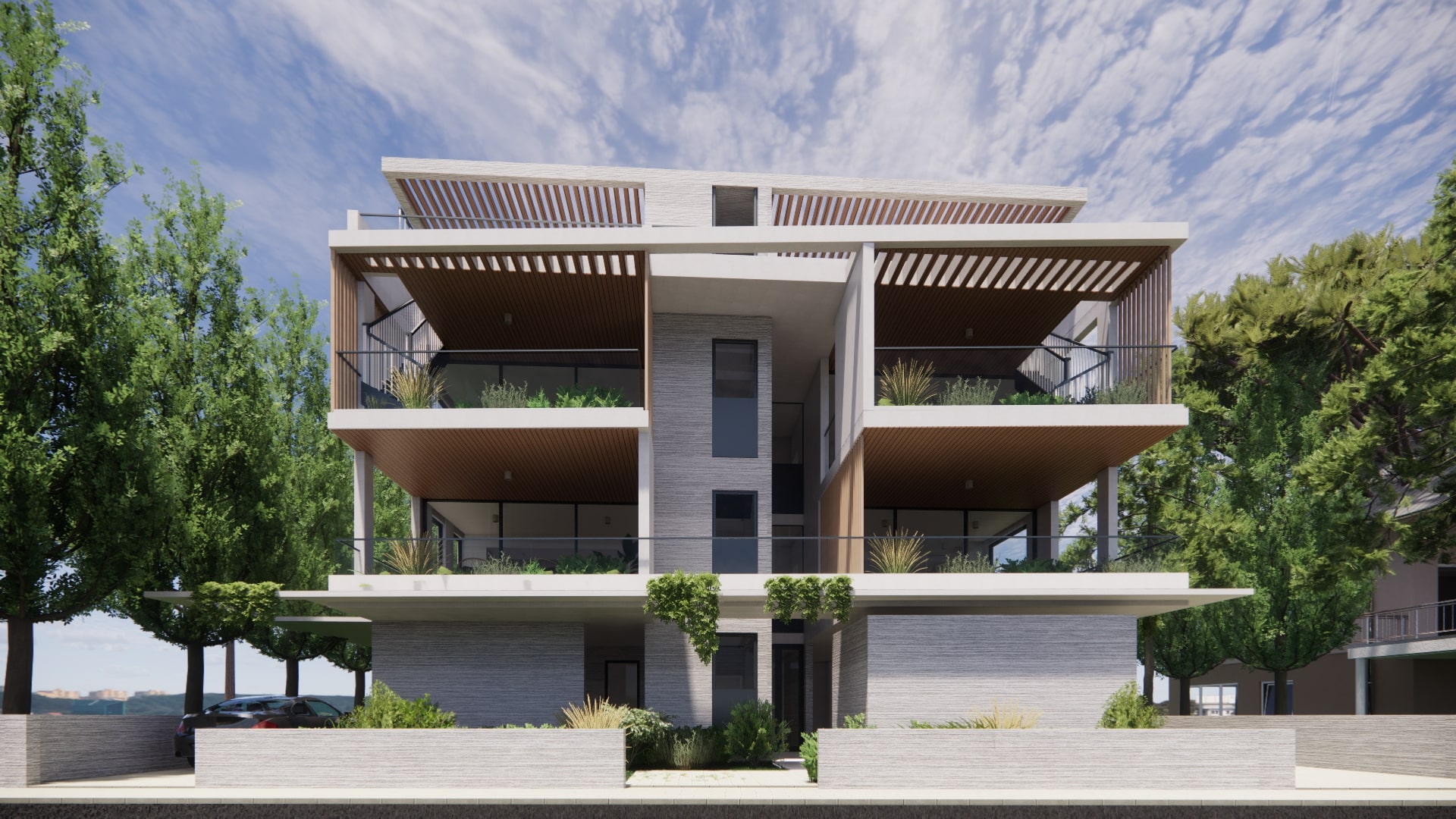

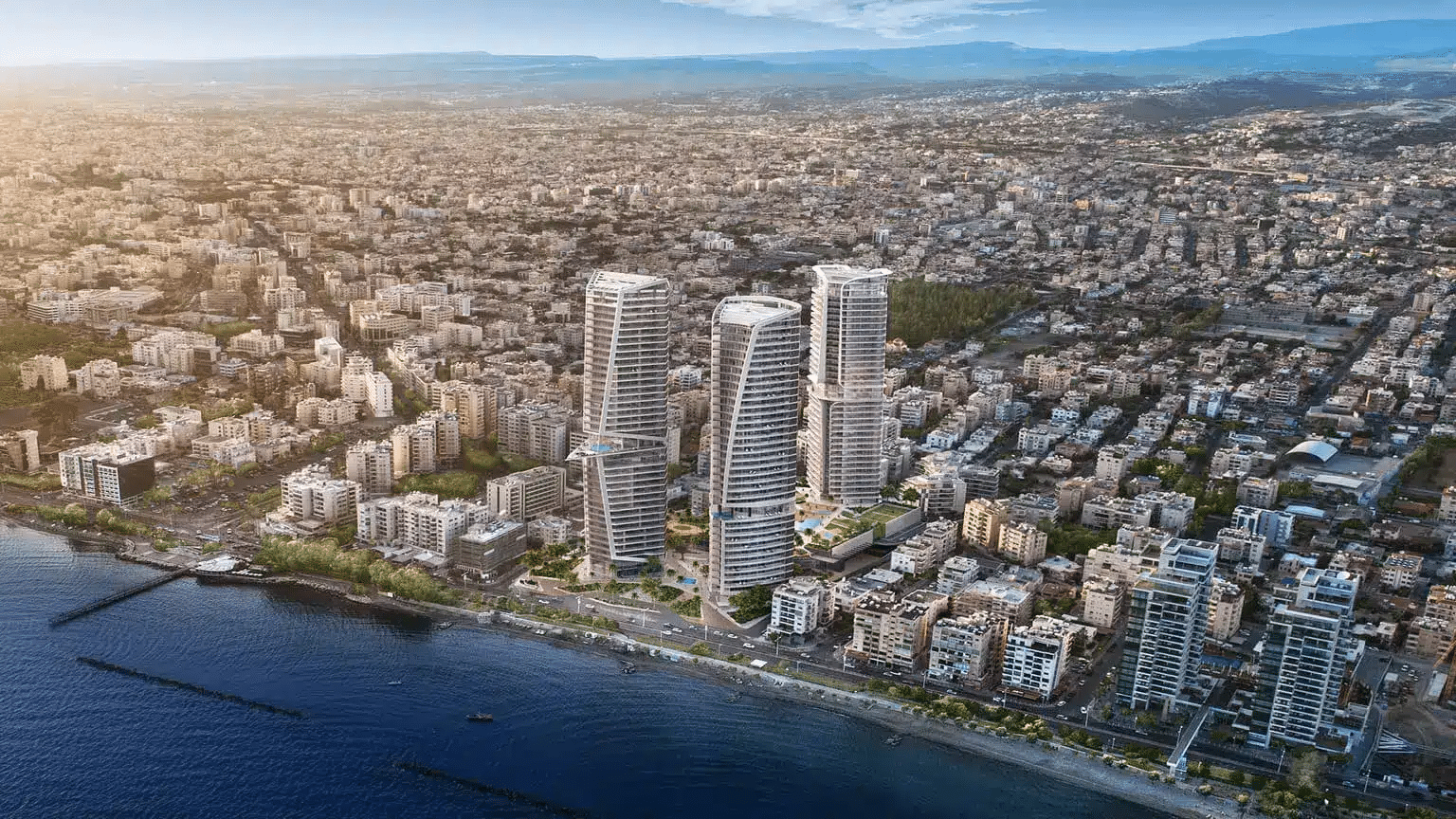
How to buy property in Cyprus
If you decide to buy real estate in Cyprus, you can choose an appropriate option yourself or seek a licensed agent’s assistance. When the choice is made, you need to find a lawyer and a notary in Cyprus to assist you in purchasing a deal. The process takes around 2 months.
You can do this remotely. At Immigrant Invest, we select and add only trustworthy property objects to our database.
To be able to buy property in Cyprus as a non-EU citizen, you need to get a special permission from the Council of Ministers of Cyprus. If you buy real estate in a new building, the seller will get the permission for you.
To do this, you can submit an online application. However, to activate the account, you need to visit the bank in person.
This way, you will reserve the object for yourself, and the seller will not be able to change the price, resell, or rent the property out.
Typically, at this stage, you will have to pay 10—30% of the property’s price.
When the agreement is made, you transfer the remaining amount to the seller.
After concluding the purchase and sale agreement, you need to submit an application to the Cyprus Land Department and pay a transfer fee. Transferring the title deed can take up to several weeks.
Why is it profitable to own real estate in Cyprus?
Tourism is one of the leading industries in Cyprus. In 2022, the island welcomed 3,201,000 tourists. That’s why there is always a demand for residential real estate. Investors can buy a villa or an apartment and rent it out to receive a stable passive income. The property can be rented out for the short and long term.
Long-term apartment rental starts from €1,148 in Limassol, €547 in Paphos, €505 in Nicosia, and €604 in Larnaca.
Short-term rental is highly profitable when the property is close to the sea. Prices for a daily rental start from €40—50. To rent out the property daily, the owner has to get a special licence from the Cyprus Tourism Organisation.
5 benefits of having property in Cyprus
1. Safety. Cyprus is considered to be a safe country for life and travel. According to the Global Peace Index, Cyprus ranks 64th out of 168 countries in the world and 23rd in the EU. It is a safer place than France and the US, which are 67th and 131st, respectively.
2. Having a passive income. As Cyprus is very popular among tourists and expats, the demand for rental property is very high. You can rent out the purchased property and receive a stable passive income. The average rental yield in Cyprus is 9%.
3. Property tax optimisation. The law of Cyprus offers different tax incentives for property owners. For example, when purchasing primary real estate for personal living, the buyer is entitled to a VAT reduction from 19% to 5%. There is also no VAT, annual immovable property tax or inheritance tax for secondary real estate.
4. A profitable long-term investment. Historically, the property market in Cyprus has been steadily growing. In 2022, the number of housing transactions in Cyprus saw a 27.4% increase compared to 2021. The property price index, which indicates the change in the average prices for real estate, showed a 5.9% increase Q1 2023 compared to the same period in 2022.
5. Opportunity to get permanent residence and citizenship. Foreign property buyers can participate in the Cyprus permanent residence by investment program. To qualify, they need to invest at least €300,000 in new commercial real estate or housing. After 5 years of living in Cyprus as a permanent resident, the investor can apply for Cyprus citizenship.
Learn the benefits, conditions, and specifics of the Cyprus Permanent Residence for investors in 2 minutes
Cyprus permanent residence for property owners
Purchasing property in Cyprus is one of the options for getting permanent residency under the permanent residency by investment program.
According to the conditions, the investor must buy one or two primary real estate objects, either residential or commercial, with a total value of €300,000. Secondary real estate does not qualify for the program.
If the investor is going to live in the purchased property themself, they are entitled to pay a reduced 5% VAT. Otherwise, a full VAT of 19% should be paid.
Other investment options include:
- purchase of fund units of Cyprus Investment Organization of Collective Investments for €300,000+;
- purchase of shares of local companies for €300,000+.
To qualify for the program, the investor should also confirm the annual income:
- €50,000+ for the main applicant;
- €15,000+ for the spouse;
- €10,000+ for each of the children included in the application.
Permanent residency does not have a validity period, but to maintain the status, the investor has to visit Cyprus twice a year. After five years of living in Cyprus, they can apply for a passport. To qualify, they need to permanently live in the country for at least a year before submitting an application, pass a language proficiency test, a history exam, and an interview.
Property Maintenance Costs in Cyprus Summary
- Property maintenance costs in Cyprus include taxes, utility and communication expenses, and insurance. Average annual maintenance expenses start from €1,500 and vary from region to region.
- When purchasing property, the buyer pays the stamp duty and VAT for new real estate or transfer fee for secondary property. As an owner, one does not pay the annual immovable property tax but the municipal tax. When selling the property, the capital gains tax and the tax on sale for the support of housing for Cypriot refugees should be paid.
- Utility expenses include electricity, water, heating, gas, and Internet and TV. Electricity represents the biggest share of utility bills.
- Cyprus property prices are among the most affordable in the EU, and the real estate market is steadily growing. The average price per square metre is €1,680. The most popular cities among real estate buyers are Limassol, Larnaca, and Nicosia.
- Property buyers in Cyprus can take part in the Cyprus permanent residence by investment program. To qualify, they need to purchase primary property for at least €300,000 and confirm their income. Five years later, they can apply for citizenship by naturalisation.
Frequently Asked Questions
Annual real estate maintenance costs in Cyprus include municipal tax, utilities, communication services, and insurance. The total amount depends on the location of the house, its size and value, and the individual consumption rates of those who live in the house.
Annual maintenance costs for a small apartment in Paphos can be around €1000, while in Limassol, usual costs start from €1500 per year.
In Cyprus, you have several utility bills: an electricity bill, a water supply and sewerage bill, and an Internet and TV bill. The electricity bill usually accounts for most of the utility costs.
The island has no centralised heating and gas supply, so homeowners usually use boilers to warm water and air conditioners or electric heaters to heat the house. This adds up to the electricity bill.
Electricity bills in Cyprus are issued every two months. A typical amount of a bill for an apartment is €150—200 per two months.
When purchasing property in Cyprus, the buyer also has to pay the following taxes and fees:
- services of a lawyer accompanying the deal;
- stamp duty;
- 19% or 5% VAT if the property is purchased at the primary market;
- transfer fee when buying property in the secondary market.
Having property in Cyprus is a good idea for several reasons:
- property prices in Cyprus are among the most affordable in the EU;
- the real estate market is growing, so you will be able to sell the property in future profitably;
- Cyprus is an attractive tourist destination, so you can rent your real estate out to use it as a source of passive income;
- you can obtain Cyprus permanent residency if meeting special conditions.
The transfer fee is paid when real estate is purchased on the secondary market. The rate ranges between 3% and 8%:
- 3% for property of up to €85,430;
- 5% for property worth between €85,430 and €170,860;
- 8% for property worth more than €170,860.
If there are several buyers in the deal, the transfer fee is divided between them.
Yes, if you have a rental property in Cyprus, you will have to pay tax on the income you get as follows:
- up to €19,500 — no tax is applied;
- €19,500—28,000 — 20% rate;
- €28,000—36,300 — 25% rate;
- €36,300—60,000 — 30% rate;
- over €60,000 — 35% rate.
To rent out your property short-term, you have to receive a special licence from the Cyprus Tourism Organisation.

